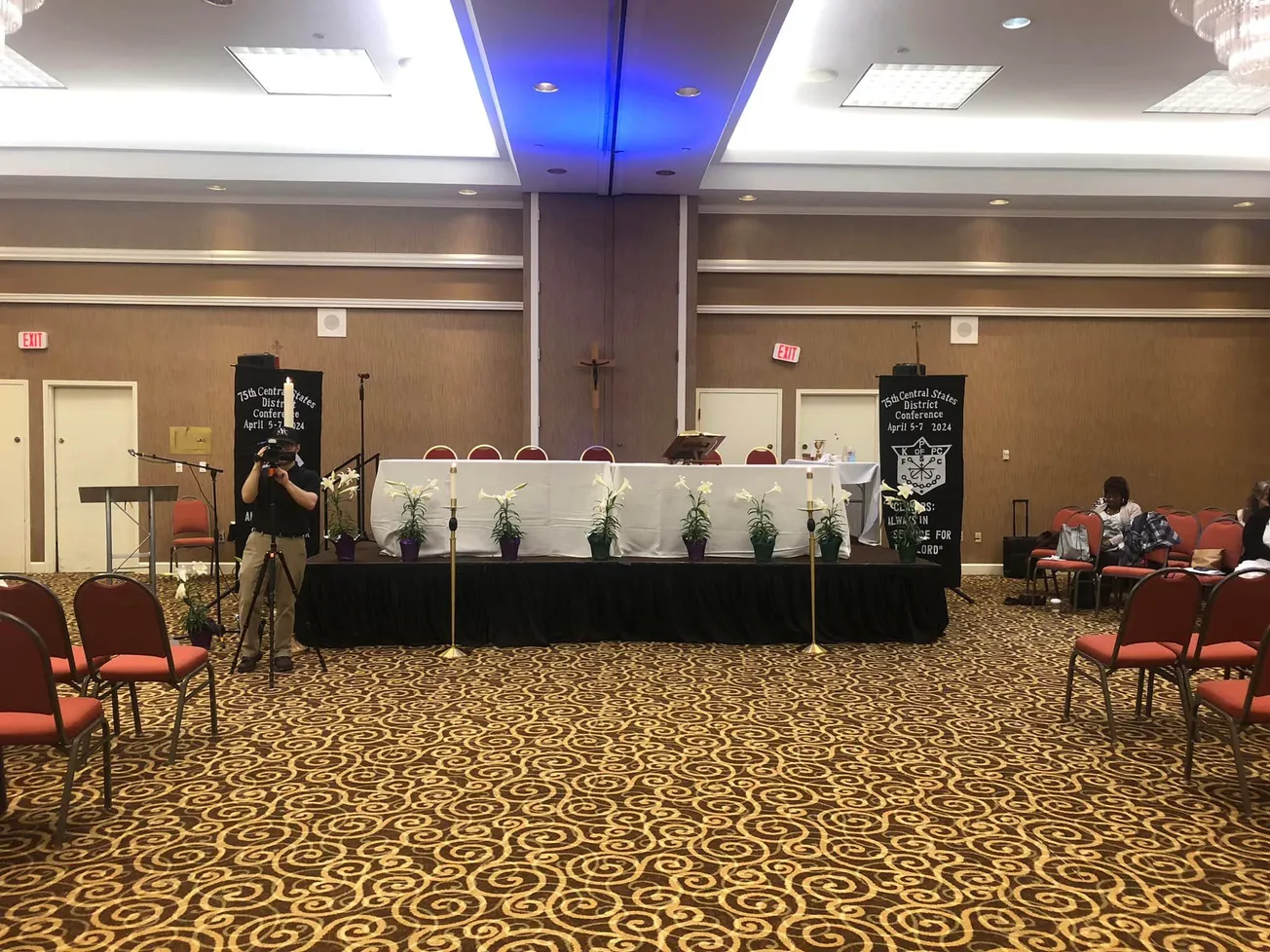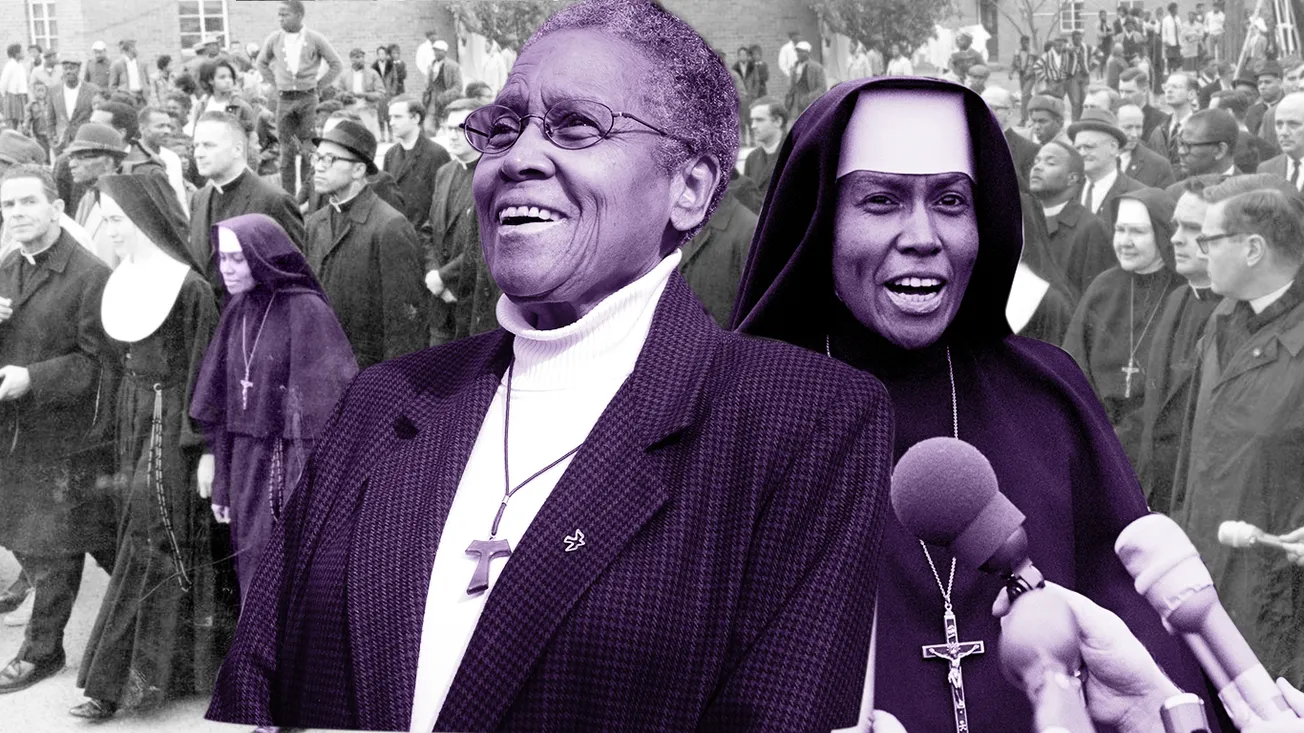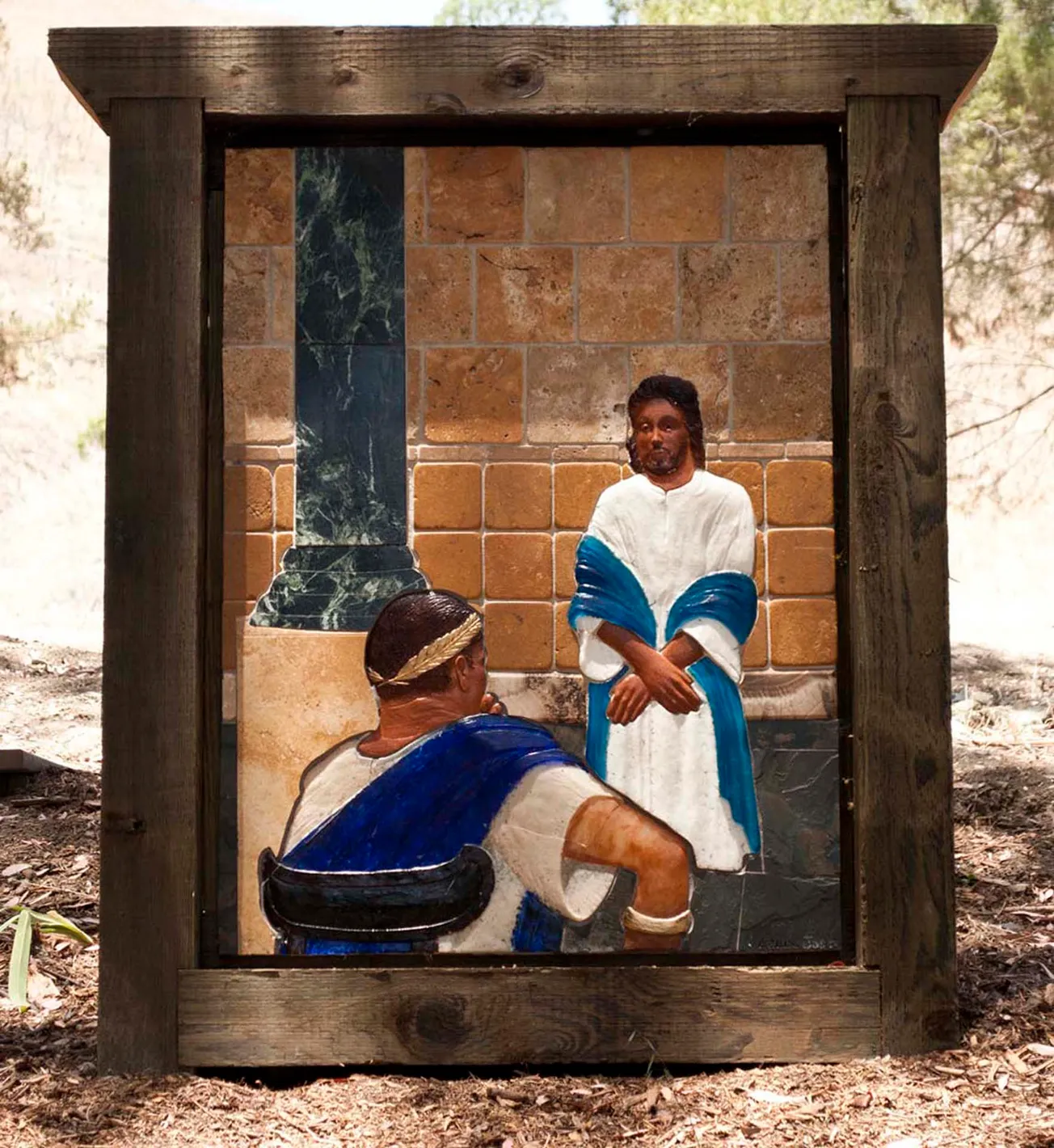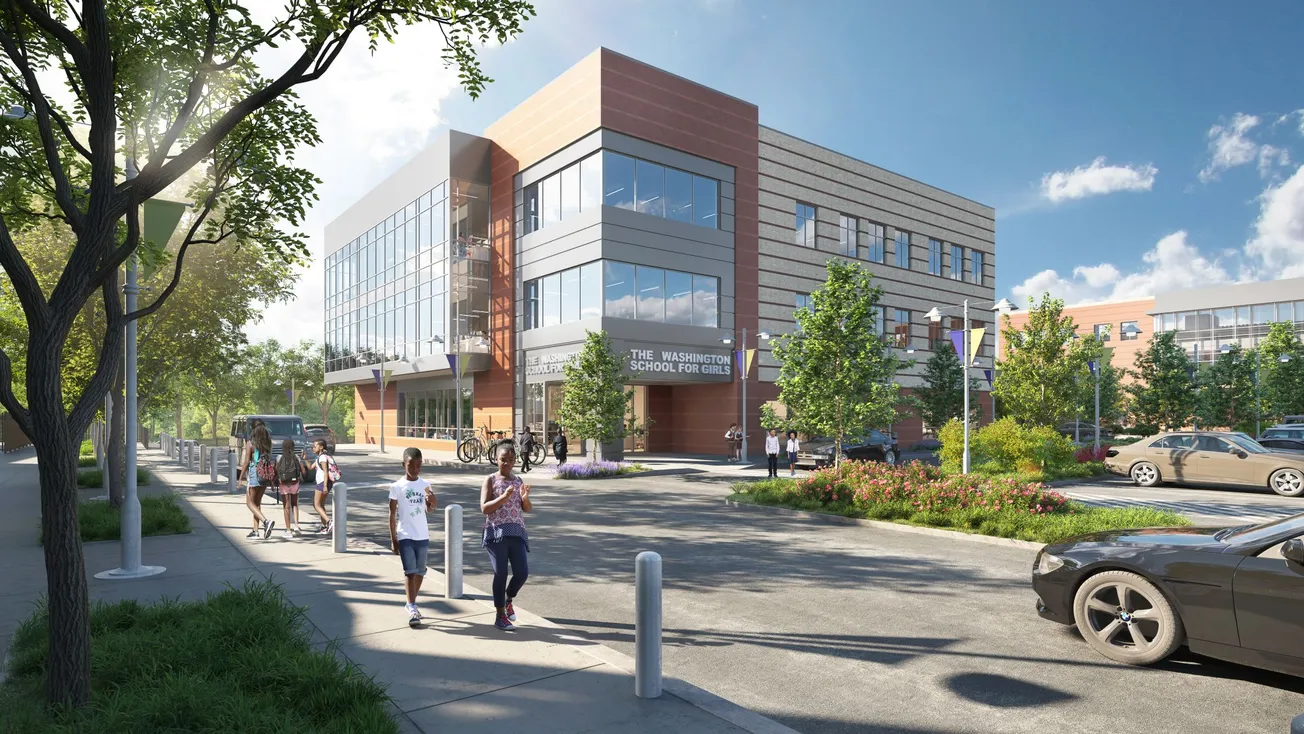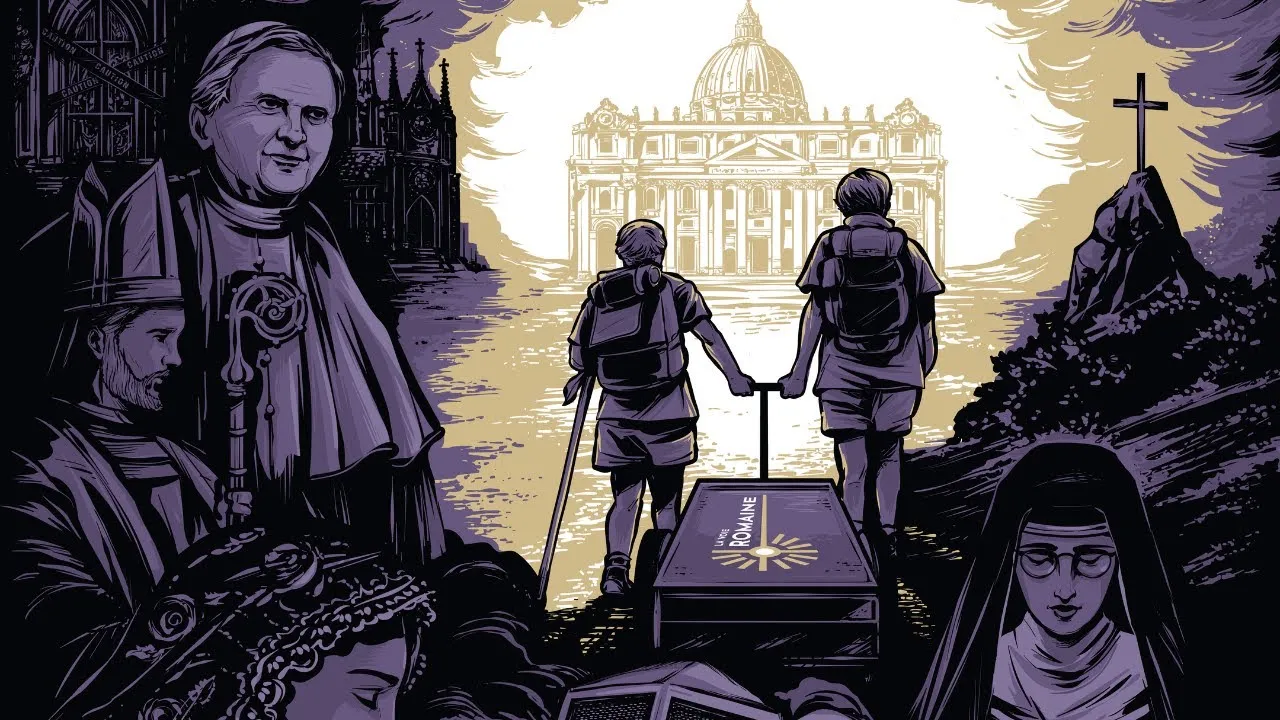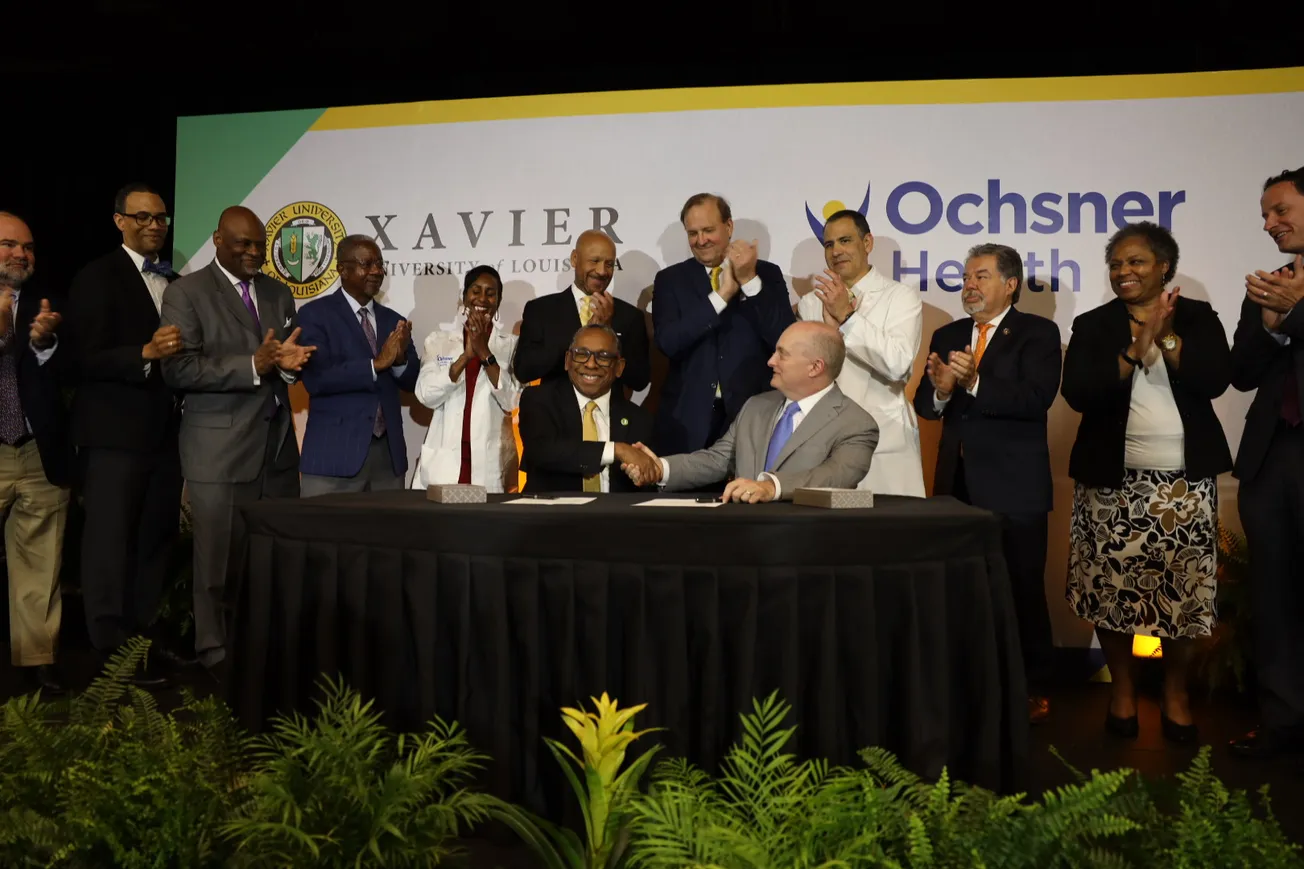As I stood between my younger and older brothers, who both towered over me, a curious young boy blurted out, “You guys are brothers?”
“Yes!” We chimed in unison.
The kid pointed his finger directly at me, “How is he your brother? He is so much shorter and darker.”
With a smile, my younger brother revealed the truth.
“He’s adopted.”
Our identities shape our lives in profound ways. Our skin color, the schools we attend, the jobs we choose, and the religion we practice all contribute to our sense of self.
I was adopted at a young age, around two-and-a-half years old, by a loving White family in a predominantly White community. Among the many blessings they bestowed upon me, the greatest was the Catholic faith. However, as an adoptee and a biracial individual, I grappled with a unique identity struggle. I was not connected to my parents by blood, and I did not fit neatly into the categories of being fully Black or fully White. At times, I felt like an outsider. While the Church as a whole is diverse, my local parish and Catholic community in Ohio were not.
I longed to belong to my family, my Church, and my community, but both outwardly and inwardly, I did not quite fit the mold.
However, the faith I was blessed with, which I made my own, provided me with someone I could identify and relate with: Jesus. He too grew up with a foster father and in a community that differed from his own divine Trinity.
These circumstances did not deter Christ from understanding his identity. He knew he was both God and man. Jesus found solace and strength in the relationship he had with his heavenly Father. We see this particularly in the Gospel of Luke, which describes the Holy Family taking their annual Passover trip to Jerusalem. After the feast was over, Mary and Joseph headed home in the caravan. They assumed 12-year-old Jesus was with a relative or an acquaintance. After a day passed, they discovered he was not. After three days, they finally found Jesus in the temple.
“They found him in the temple courts, sitting among the teachers, listening to them and asking them questions. Everyone who heard him was amazed at his understanding and his answers. When his parents saw him, they were astonished. His mother said to him, “Son, why have you treated us like this? Your father and I have been anxiously searching for you.”“Why were you searching for me?” he asked. “Didn’t you know I had to be in my Father’s house?” But they did not understand what he was saying to them.”
(Luke 2:46-51, NLT)
This snippet of Jesus’ life resonates so much with my own as an adoptee. I can’t help but think of how Joseph must have felt when he heard his adopted son refer to his real Father. Joseph did not know all the details about Christ’s origin, just like so many adoptive parents know so little about their children.

Joseph, like my own adoptive father did for me, chose to love Jesus with all his heart. Love is what makes adoption fruitful. When parents put their adoptee’s needs and well-being over their own, they demonstrate this love. This reveals not only an adoptee’s identity but also mirrors God’s love for us.
In Christ, we find our true identity. While our identity cannot be taken away from us, we have the capacity to give it away. At times, we might mistakenly believe that we can only truly belong by becoming something we aren’t or fitting into predefined molds. However, it is through belonging that we truly become ourselves. This is why our baptism holds such significance. In baptism, we become adopted children of God. My earthly adoption reflects this heavenly adoption, in which we are all called to find our true identity.
The name I was given at birth was changed by my adoptive parents. I have encountered other adoptees who have struggled with their name change, feeling that their identity is tied to their birth name. Some adoptees cling to their place of origin, even when they have spent most of their lives in their adopted community. This nostalgia is not inherently good or bad; It is an attempt to form one’s identity and heal the separation of the past.
However, in our spiritual adoption through baptism, we set ourselves apart from the connotations of our past, which is tied to the world and the influence of the devil. We can no longer allow ourselves to be swayed by these. Instead, we stand firmly on Christ our cornerstone even when the world shakes around us, knowing that the people and things we love may be disrupted.
Moreover, our identity in Christ gives us a great and lasting community. While we may or may not encounter many people in the Church who look like us or share the same interests, we have a supportive community both among the living and the dead!
My experience as an adoptee has shown me it’s crucial that we re-energize our evangelization efforts to all individuals—particularly to those marginalized in urban areas where spiritual identity is often lacking. We need to invite them to belong, too.
I am thankful for my journey of adoption. It has taught me that identity is not solely determined by bloodlines or outward appearances. Identity is forged through love, faith, and the relationships we build. Let’s reclaim our identity as adopted children of God today. We all belong and are becoming the saints who will inherit the kingdom of God.
Joseph Peach is a Catholic author, freelance writer, and speaker. He works for Catholic Charities in the Diocese of Cleveland and has published six books.




